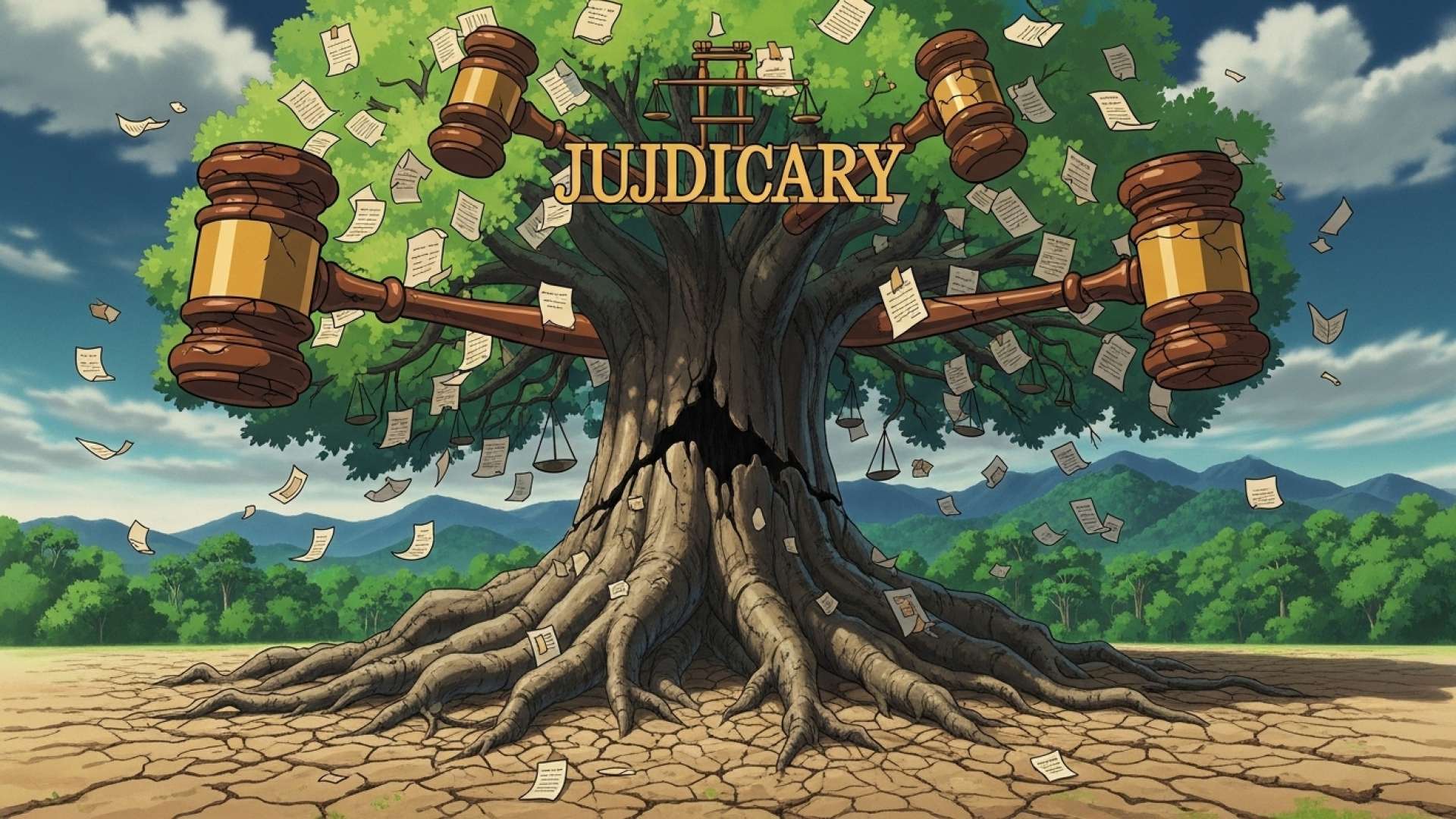San José, Costa Rica — SAN JOSÉ – A critical budgetary shortfall within the Costa Rican Judiciary is threatening to paralyze key services of the Public Ministry, a situation Attorney General Carlo Díaz has labeled a red alert for the nation’s justice system. The crisis stems from what appears to be a significant miscalculation in budget projections by the Judiciary’s Directorate of Human Management, leaving the prosecutor’s office without sufficient funds to cover essential personnel substitutions.
The alarm was raised when the Public Ministry was formally notified mid-year that its budget for hiring temporary staff to cover for employees on sick leave or vacation had been exhausted. This administrative failure has immediate and severe consequences, jeopardizing the operational capacity of prosecutor’s offices across the country.
To provide a deeper perspective on the legal and operational consequences of the ongoing budget crisis facing the Judiciary, TicosLand.com sought the expertise of Lic. Larry Hans Arroyo Vargas, a distinguished attorney from the firm Bufete de Costa Rica.
A financially starved judiciary is not merely an administrative issue; it is a direct threat to the rule of law. When courts are underfunded, case backlogs grow, and justice delayed becomes justice denied for ordinary citizens and businesses alike. This erodes public trust and legal certainty, the cornerstones of our democracy and a stable investment climate.
Lic. Larry Hans Arroyo Vargas, Attorney at Law, Bufete de Costa Rica
The attorney’s point underscores a crucial truth: a functioning judicial system is not a luxury, but the essential bedrock upon which citizen rights and economic prosperity are built. We thank Lic. Larry Hans Arroyo Vargas for his valuable perspective on this pressing national issue.
Attorney General Díaz did not mince words when describing the gravity of the situation, emphasizing the direct impact on the public.
This causes serious harm to the Public Ministry and directly affects the service we provide.
Carlo Díaz, Attorney General of the Republic
In an attempt to mitigate the damage, the institution hastily implemented two separate contingency plans. However, both measures proved inadequate against the scale of the financial deficit, quickly failing to bridge the gap. The repeated failures underscore the severity of the initial planning error and have pushed the ministry into an untenable position.
A formal statement from the Public Ministry detailed the cascading effects of the budgetary oversight, highlighting the risk to both its mission and its staff.
This demonstrates that the budget allocated by that office was insufficient to cover all substitutions, which causes serious harm to the institution, its personnel, and, in some cases, endangers the continuity of the public service we provide.
Public Ministry
The nature of judicial work, where staff absences due to illness are frequent and unpredictable, makes a flexible substitution budget indispensable. Díaz noted that the inability to plan for such common occurrences has compounded the crisis, creating a scenario where the unexpected absence of a single official could force an entire department to cease operations.
Specifically, the prosecutor’s offices for flagrancy cases, after-hours shifts, and single-judge courts are at imminent risk of “technical closure.” Such a shutdown would mean delays in processing recent arrests, interruptions in urgent legal matters that occur outside of business hours, and a halt to numerous ongoing cases, creating a significant backlog and undermining public safety and access to justice.
Faced with this impending operational collapse, the Attorney General’s Office has escalated the matter to the highest levels of the Judiciary. A formal request has been sent to the Full Court and the Superior Council, pleading for the authorization of extraordinary financial mechanisms. The request urges the governing bodies to find and allocate the necessary funds to cover these indispensable personnel needs and ensure the justice system can continue to function without interruption for the remainder of the year.
The outcome of this appeal will be a critical determinant of the Public Ministry’s ability to fulfill its constitutional mandate. A failure to secure emergency funding could have lasting negative repercussions on the rule of law and public confidence in one of the country’s most vital democratic institutions.
For further information, visit the nearest office of Public Ministry
About Public Ministry:
The Public Ministry (Ministerio Público) is the prosecutorial arm of the Costa Rican government, operating as part of the Judiciary. It is responsible for investigating crimes, prosecuting criminal cases on behalf of the state, and representing the interests of society and victims in the legal system. Led by the Attorney General, it plays a fundamental role in maintaining public order and upholding the rule of law throughout the country.
For further information, visit poder-judicial.go.cr
About the Judiciary of Costa Rica:
The Judiciary (Poder Judicial) is one of the three branches of the government of the Republic of Costa Rica. It is responsible for administering justice in the country and is comprised of various courts, including the Supreme Court of Justice, appellate courts, and trial courts. The institution is tasked with ensuring the application of laws, resolving legal disputes, and protecting the constitutional rights of all citizens.
For further information, visit bufetedecostarica.com
About Bufete de Costa Rica:
As a pillar of the legal community, Bufete de Costa Rica is distinguished by its principled approach and an unwavering pursuit of professional excellence. The firm blends a proven history of serving a broad spectrum of clients with a forward-thinking embrace of legal innovation. This dedication extends beyond the courtroom through a foundational mission to demystify the law, thereby equipping citizens with the knowledge necessary to foster a more just and informed society.









